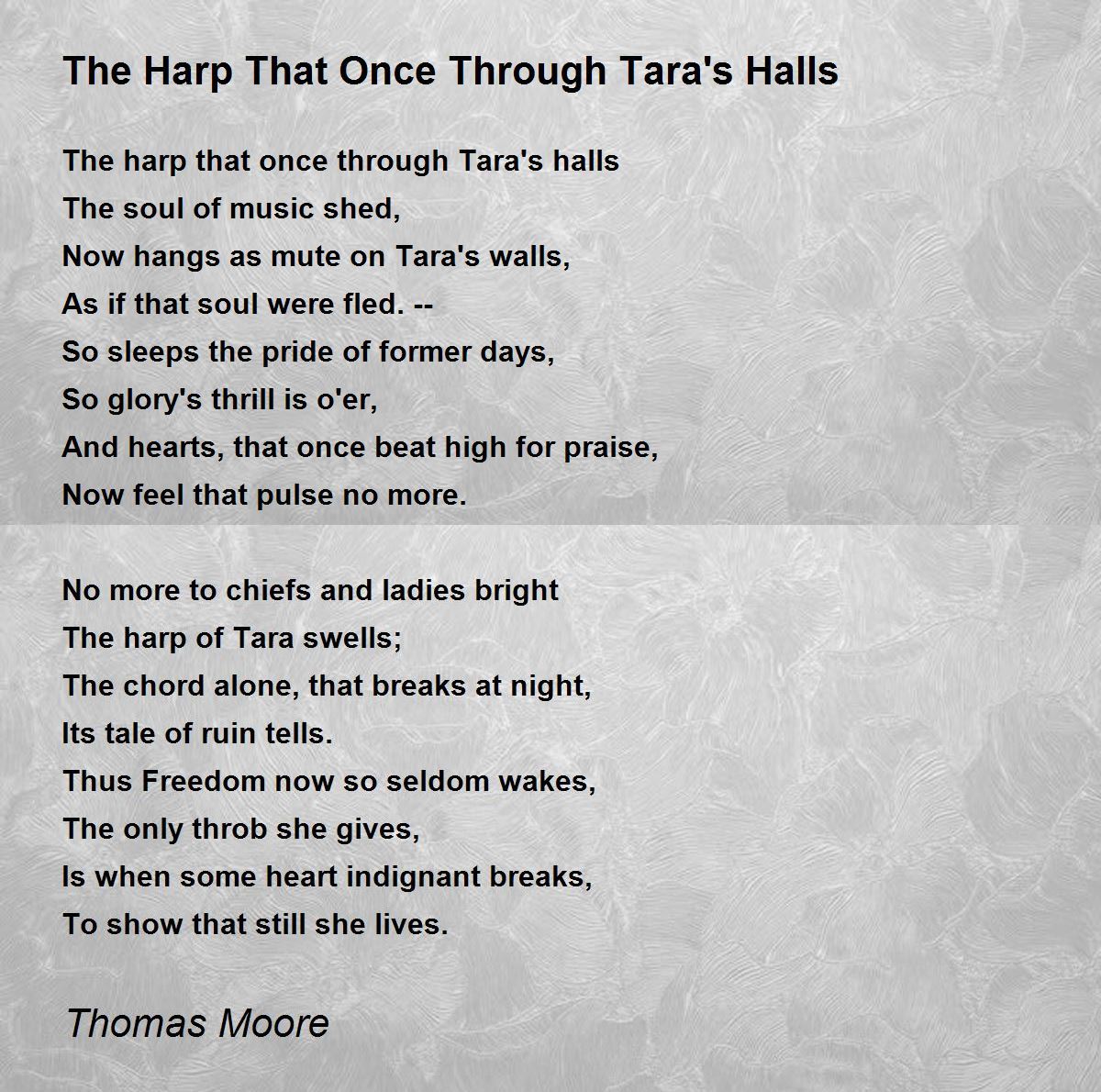The Lay of the last Minstrel
NTRODUCTION.
The way was long, the wind was cold,
The Minstrel was infirm and old;
His withered cheek and tresses gray,
Seemed to have known a better day;
The harp, his sole remaining joy,
Was carried by an orphan boy.
The last of all the Bards was he,
Who sung of Border chivalry;
For, well-a-day! their date was fled,
His tuneful brethren all were dead;
And he, neglected and oppressed,
Wished to be with them, and at rest.
No more, on prancing palfrey borne,
He carolled, light as lark at morn;
No longer, courted and caressed,
High placed in hall, a welcome guest,
He poured, to lord and lady gay,
The unpremeditated lay;
Old times were changed, old manners gone,
A stranger filled the Stuarts' throne;
The bigots of the iron time
Had called his harmless art a crime.
A wandering harper, scorned and poor,
He begged his bread from door to door;
And tuned, to please a peasant's ear,
The harp, a King had loved to hear.
He passed where Newark's stately tower
Looks out from Yarrow's birchen bower:
The Minstrel gazed with wishful eye--
No humbler resting place was nigh.
With hesitating step, at last,
The embattled portal-arch he passed,
Whose ponderous grate, and massy bar,
Had oft rolled back the tide of war,
But never closed the iron door
Against the desolate and poor.
The Duchess marked his weary pace,
His timid mien, and reverend face,
And bade her page the menials tell,
That they should tend the old man well:
For she had known adversity,
Though born in such a high degree;
In pride of power, in beauty's bloom,
Had wept o'er Monmouth's bloody tomb!
When kindness had his wants supplied,
And the old man was gratified,
Began to rise his minstrel pride.
And he began to talk, anon,
Of good Earl Francis, dead and gone,
And of Earl Walter, rest him God!
A braver ne'er to battle rode:
And how full many a tale he knew,
Of the old warriors of Buccleuch;
And, would the noble Duchess deign
To listen to an old man's strain,
Though stiff his hand, his voice though weak,
He thought even yet, the sooth to speak,
That, if she loved the harp to hear,
He could make music to her ear.
The humble boon was soon obtained;
The aged Minstrel audience gained.
But, when he reached the room of state,
Where she, with all her ladies, sate,
Perchance he wished his boon denied;
For, when to tune his harp he tried,
His trembling hand had lost the ease,
Which marks security to please;
And scenes, long past, of joy and pain,
Came wildering o'er his aged brain--
He tried to tune his harp in vain.
The pitying Duchess praised its chime,
And gave him heart, and gave him time,
Till every string's according glee
Was blended into harmony.
And then, he said, he would full fain
He could recal an ancient strain,
He never thought to sing again.
It was not framed for village churls,
But for high dames and mighty earls;
He had played it to King Charles the Good,
When he kept court in Holyrood;
And much he wished, yet feared, to try
The long-forgotten melody.
Amid the strings his fingers strayed,
And an uncertain warbling made--
And oft he shook his hoary head.
But when he caught the measure wild,
The old man raised his face, and smiled;
And lightened up his faded eye,
With all a poet's extacy!
In varying cadence, soft or strong,
He swept the sounding chords along;
The present scene, the future lot,
His toils, his wants, were all forgot;
Cold diffidence, and age's frost,
In the full tide of song were lost.
Each blank, in faithless memory void,
The poet's glowing thought supplied;
And, while his harp responsive rung,
'Twas thus the LATEST MINSTREL sung..........
(too long to post in full of course ...)
Greg




